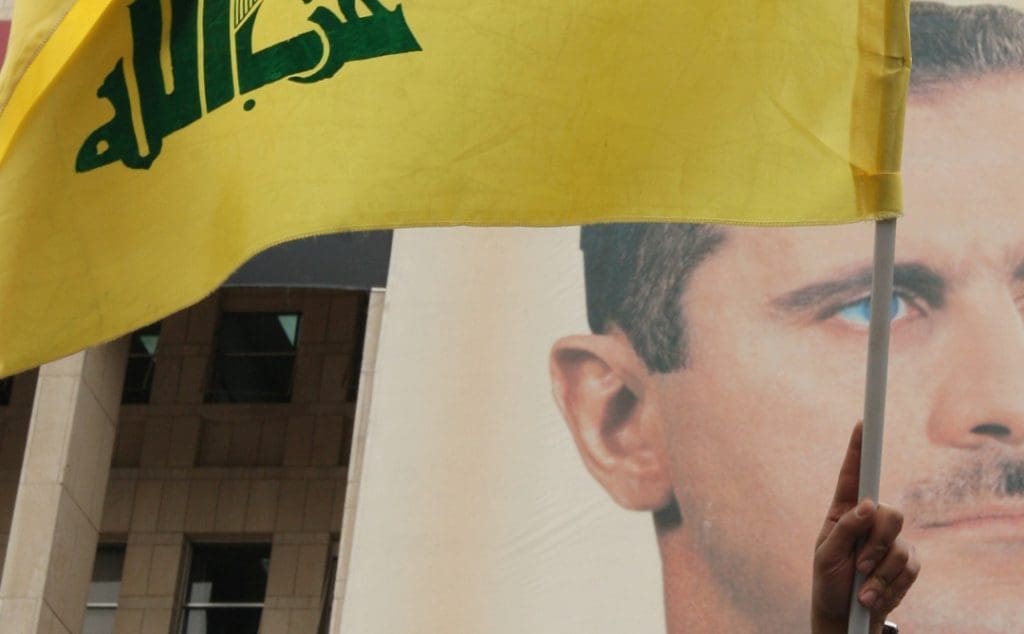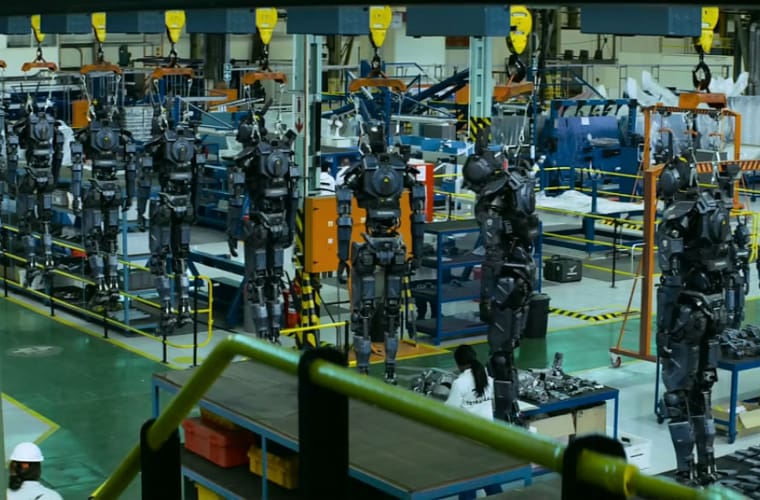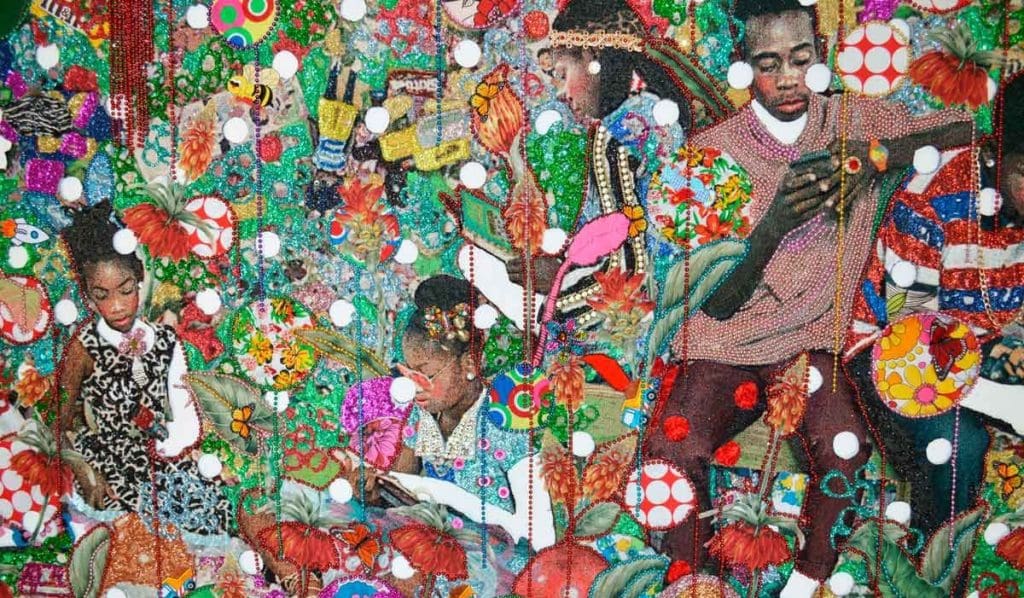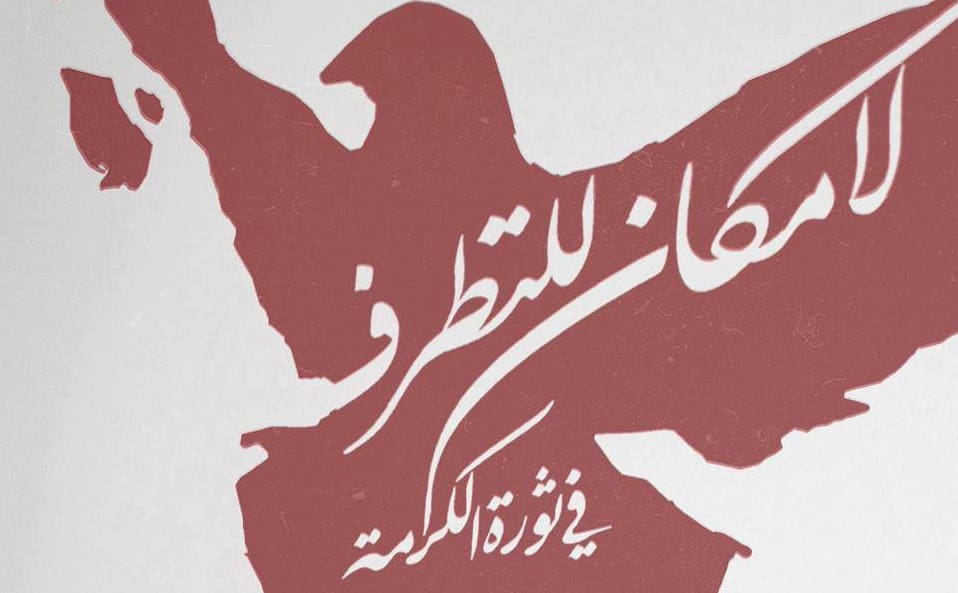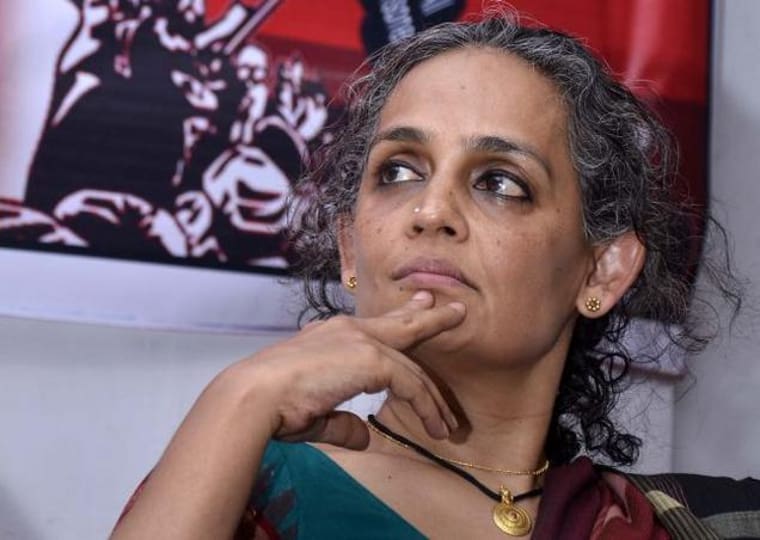Transcribed from the 18 February 2017 episode of This is Hell! Radio (Chicago) and printed with permission. Edited for space and readability. Listen to the whole interview:
This is very important to understand: throughout the Middle East, sectarianism has become an instrument of counterrevolution dividing popular classes, trying to prevent any cross-sectarian alternative movement.
Chuck Mertz: Live in studio with us right now is Joseph Daher.
Joseph Daher: Thank you for welcoming me.
CM: Joseph is author of Hezbollah: The Political Economy of Lebanon’s Party of God, and has also written extensively about what’s happening in Syria. I hope to get to that as well today.
Joe teaches at Lausanne University in Switzerland. He is author of The People Demand: A Short History of the Arab Revolutions, and founder of the blog Syria Freedom Forever.
You write about Hezbollah: “Many have pointed to its provision of social services as a sign of the organization’s progressive hue. This claim, however, doesn’t hold up to reality. Hezbollah has, over time, positioned itself on the wrong side of social and economic struggles in Lebanon and shed some of its former roots, aligning itself with an emerging fraction of the Shi’a bourgeoisie.”
Has Hezbollah, then, gone neoliberal? Have they abandoned their social service progressivism for public-private partnerships and market solutions for the problems faced by the people of Lebanon?
JD: Indeed. Throughout the decades—Hezbollah was officially established in ’85—it increasingly witnessed a bourgeoisification of its cadres and leadership. It’s important to say that it has always done charity services, and not social services from a perspective of emancipating the popular classes. If we consider charity services as social justice, then we should consider the Vatican one of the most progressive institutions in the world.
Throughout the world, religious fundamentalist groups have simultaneously supported neoliberal policies while providing charity services, meanwhile undermining the welfare state. Through their private provision of charity services, they can also provide their political message and build their clientelist bases; thus Hezbollah is today one of the key actors in the Lebanese sectarian and bourgeois political system.
CM: Is it fair to characterize their charity services as a kind of bribery for political support?
JD: If you’re in Lebanon as a Shi’a citizen, you’ll want to receive charity services, because the Lebanese state does not provide services. We cannot accuse the people receiving these kinds of charity services of accepting bribes—I wouldn’t call it bribery, I would call it a way of building hegemony through coercion and consent. The charity part of Hezbollah is about building hegemony within the Shi’a population of Lebanon.
All the Lebanese sectarian and bourgeois parties—Hezbollah or others like the Future Movement and other Lebanese sectarian elites—have an interest in keeping the Lebanese state very minimal and not being able to provide services, because it would break all their popular advantages based on sectarian dynamics.
So not only Hezbollah but all of the Lebanese sectarian elite is in favor of a minimal Lebanese state that only intervenes to break a popular or cross-sectarian social movement.
CM: Is Lebanon, then, the epitome of a neoliberal state? Would you assume that neoliberals here in the United States would wish to have a government like Lebanon’s, as the epitome of the neoliberal state?
JD: Indeed. If you look at the right wing and a large section of the Republican Party—and to a certain extent the Democrats as well—they are in favor of diminishing public services and privatizing wide sectors of the state. It’s a dream for neoliberals to have a very weak state when it comes to social services, and one that only plays a role regarding security issues. This is the whole ideology of neoliberalism: undermining social services and the welfare state while increasing the security instruments of the state to break any kind of social movements challenging neoliberal policies and authoritarian practice, which often go together.
There were movements in Lebanon throughout the 1980s—and more recently with the campaign You Stink in the summer of 2015—that brought together large segments of the Lebanese people, from various sects, challenging the Lebanese sectarian bourgeois system and turning an ecological crisis into a political crisis. There have also been social movements—for example after 2011-2012, and in the nineties as well—regarding teachers and public services, and trade unions with massive mobilizations, hundreds of thousands of people striking. The various sectarian and bourgeois parties always broke these movements. But there is always hope that people can try to rebuild movements from below and an alternative that is secular, democratic, and in favor of social justice.
All the parties in Lebanon completely refuse any kind of reform. There was the case of a particular minister who tried reforms and was put aside by the political parties. Across the Middle East and North Africa, one of the key reasons for the uprisings of 2011 were the consequences of neoliberal policies over the past few decades.
CM: Is it fair to characterize Hezbollah as a once-revolutionary party that came to power and then turned their backs on their revolutionary past? Or is that an oversimplification?
JD: I think Hezbollah was never a revolutionary party. It was established for various reasons: obviously the occupation of Lebanon by Israel, but also following the establishment of the Islamic Republic of Iran. It’s always been completely linked to the Islamic Republic if Iran, which I would not call an anti-imperialist or revolutionary state. The Islamic Republic of Iran and its leadership were never revolutionary. They crushed the major radical sectors of the popular revolution in Iran, and are now as then crushing their own population, being authoritarian, having very neoliberal policies. Hezbollah, by extension, is a typical religious fundamentalist party, a trans-class party.
Obviously when Israel attacks Lebanon, I stand with the Lebanese people and the rights of resistance. But this does not mean that I support a political project that is opposed to the popular classes of Lebanon and the region and that has pursued sectarian policies, anti-woman policies, and policies that have not improved the condition of Palestinian refugees or Syrian refugees—quite the opposite. It’s never been a revolutionary party.
If we look at the history of Islamic fundamentalism—and not only Shi’a or Sunni—they have always been very much in favor of liberal economies, privatization. Take for example the historical path of the Muslim Brotherhood in Egypt: they have always been very pro-neoliberal even when not in power. When they came to power, also they were very neoliberal.
I think it’s very important to understand that we cannot characterize a political party as anti-imperialist or pro-resistance only because it says “Death to America” or opposes Western culture. Otherwise we should consider Al Qaeda one of the most progressive organizations in the world. It must be according to its political program, policies regarding the popular classes, women’s issues, sectarian issues, etcetera.
CM: How much, in your opinion, has privatization, liberalization, and opening up to foreign capital led to increased poverty and inequality since Hezbollah has risen to the political power it now has within parliament? Is Hezbollah simply unwilling to admit any connection between neoliberalism and inequality?
JD: In my interviews with various Hezbollah cadres, they didn’t see any kind of contradiction between supporting neoliberal policies—for example, one of their ministers was in charge of the privatization of the electricity sector and various other privatization policies—and social justice. But they don’t understand social justice the way you and I understand it, as the emancipation of the popular classes.
Hezbollah through time has become more entrenched within the Lebanese sectarian and bourgeois system that it opposed in the beginning—but on a reactionary basis, saying that they wanted to establish an Islamic state. This is why I’m saying it was never really progressive. But through the decades and through the increasing participation of the Shi’a fraction of the bourgeoisie within the party, it has been listening more to sections of society in Lebanon that are in favor of more neoliberal policies.
The issue is that none of the political parties want to speak about class, because this would be the end of their domination of the society. Sectarianism is used as an instrument of division among the various popular classes, therefore preventing them from collaborating together. This is very important to understand: that throughout the Middle East, sectarianism has become an instrument of counterrevolution dividing popular classes, trying to prevent any cross-sectarian alternative movement. Hezbollah is not different, in this regard, from other religious fundamentalist movements.
Hezbollah considers the class issue as very bad. It is division of the believers. This perspective combined with neoliberalism (the people who become rich do so because they are good believers) is the discourse.
CM: You point out that Hezbollah has a long history of protecting the Lebanese government from mass trade union and worker mobilizations. You show example after example of that. How much of an obstacle has Hezbollah become, then, for those who want workers’ rights in Lebanon?
JD: Just like the other Lebanese sectarian elites, it’s preventing any kind of independent labor movement combatively challenging the neoliberal policies of the government, and this has been the case since the mid- to late nineties. First against the main trade union in Lebanon that is called the CGTL, and after 2011 when it was around the movement of union coordination committees. In both cases we saw all the various Lebanese sectarian elite parties unite to crush the combative trade unionist leadership.
Today there are various parties that are trying to build an alternative and to put forward labor rights, but unfortunately on a mass basis this does not exist. There are contradictions that are increasingly appearing among the popular classes, but unfortunately because of the lack of a popular alternative on the ground, people cannot seek something else. Even though there are contradictions and criticism of Hezbollah’s increasing neoliberal policies and participation in government, if you don’t have an alternative that you can join, this unfortunately remains just criticism.
The state of the workers in Lebanon is unfortunately very negative, and diminishing on nearly a daily basis. And unfortunately with the heads of the trade unions controlled by the various Lebanese sectarian elites—instead of seeing the numbers of new Syrian refugees in Lebanon as allies to do cross-national struggles together, they accuse Syrian labor of pushing down salaries, of being the problem when it comes to the economy, just like the Lebanese sectarian elites. This is very unfortunate.
CM: Is the anti-labor stance that Hezbollah seems to take a threat to their own power? Are they undermining their own power by being so neoliberal?
JD: In the mid- to long term, definitely. But as I said, the main issue is that today because of ideology and the domination of a sectarian perspective among the Lebanese society, because of the structure of the state that is based on political sectarianism, this prevents the building of an alternative.
This is a key issue. You can show the contradictions of Hezbollah, but you cannot build on these contradictions without an alternative that is present among the Lebanese people, the popular classes. And this is the key issue that a lot of people are trying to work on in Lebanon. This is why it is so important, every time there is a movement from below (what happened after 2011 with the movements that want the fall of sectarianism, or more recently with the You Stink! campaign that challenged the whole elite), to build on this. Without this, it’s not possible to benefit from the contradictions of Hezbollah or the Lebanese sectarian bourgeois parties.
Hezbollah considers—as do other religious fundamentalist parties throughout the world—the class issue as very bad. It is division of the believers. This perspective combined with neoliberalism (the people who become rich do so because they are good believers) is the kind of discourse that is very much present.
CM: I want to get to Syria—let’s start with the relationship between Hezbollah and Assad. What is the purpose of Hezbollah supporting Assad? What are they telling the people within Lebanon, the people within their party, about why it’s so important to defend Bashar al Assad?
JD: It is important to remind everyone that the relationship between these two actors was very much strengthened following the arrival to power of Bashar al Assad, who allowed the provision of all kinds of weapons to Hezbollah, which had not been the case before 2000 under the rule of Hafez al Assad, the father. And the relationship was no longer tactical; it became strategic—as we can see with the intervention of Hezbollah in Syria to assist the Assad regime in crushing the popular uprising. The main issue is that the weapons that are provided to Hezbollah by Iran go through Damascus. Therefore it is absolutely a key issue for Hezbollah that the Assad regime stays in power.
The discourse of Hezbollah to justify its intervention in Syria varies. First there is the main rhetoric saying that Daesh, the so-called Islamic State, has expanded; the various takfiri Sunni jihadist forces have expanded in Syria, and therefore they must intervene to save not only the Syrian people but Lebanon. It’s a preemptive intervention to protect the Lebanese people. After that, there is the second main discourse saying it’s to protect the axis of resistance: Hezbollah, Syria, and Iran, against the coalition of Saudi Arabia, Israel, and the United States. And finally there is this sectarian Shi’a discourse saying it’s a new Karbala—in the Islamic history this has a specific resonance among Shi’a people—and they must protect the Shi’a people.
All these kinds of discourse are present within Hezbollah’s propaganda to justify its intervention in Syria.
CM: Is that propaganda successful? Is it popular? Does it work on the people of Lebanon? Or just on a small faction?
JD: It has become the main dominant message, and it is working. At the beginning there was criticism even within some sections of Hezbollah, for example people saying, “Listen, we are ready to send our children to fight against Israel—but Syria, no. We disagree with this. These are our brothers and sisters.”
But this discourse, this kind of criticism was increasingly undermined, because of the rise in summer 2013 of the Islamic State. There were attacks in Shi’a neighborhoods of Lebanon by jihadist forces, and therefore some of the people saw the only option to preserve and protect their lives was Hezbollah’s weapons. So these kinds of criticisms have been increasingly disappearing.
And I’m sorry to point this out repeatedly, but again the lack of a democratic and progressive alternative is key: if you don’t have Hezbollah to protect you, who will protect you? And if we don’t build this democratic, progressive alternative in Lebanon…people won’t leave Hezbollah just for free.
CM: I really want you to explain something about what’s taking place in Syria. This has been a huge controversy, and I’ve had fallings out with some people who have been on the show in the past, and I’ve had some people enjoy some of the guests that we’ve had on in the past who have talked about the democratic opposition in Syria.
There was an interview posted with you at Syria Freedom Forever this week entitled “The New Balance of Terror in Syria.” The introduction to that interview calls Assad’s government a dictatorship. What would you say to those who would argue that it is not a dictatorship because it has been elected (even if one of those elections was during the ongoing war)?
JD: For the past four decades in Syria, there have been elections, since the arrival to power of the father of Bashar al Assad, Hafez al Assad, in 1970. And it’s more of a referendum on whether you accept or not. There was a joke in Syria—there are two options on the ballot: Yes, and underneath, instead of No, it says, Give us your address. Everyone knows Syria has been a complete dictatorship for the past four decades.
There are also other examples of authoritarian governments organizing elections just to legitimize or justify their power to the population, or more precisely, to other international or regional actors. It’s not even a matter of debate to say that Assad’s regime is a dictatorship.
These uprisings have been documented in a way that has never been seen before in history. There is documentation of the uprising, of the organization of Local Coordinating Committees. There is YouTube video of, for example, Homs Square: 50,000 people. Would you say that Tahrir Square didn’t happen?
CM: A couple months ago, all of the sudden I saw this video all over social media for like three or four days, then it took no time for everything that this Canadian journalist Eva Bartlett said to be debunked.
But what would you say about somebody like Eva Bartlett who is telling people that the Assad regime was democratically elected when clearly that process wasn’t democratic?
JD: I would tell Eva Bartlett that while in the past she has stood with oppressed people, notably in Palestine, today unfortunately she stands with the oppressor. And you know, there is also this whole discourse that Israel is the only democracy in the Middle East—I think this same kind of joke is being made with the case of Assad’s dictatorship as a democracy. In both cases, we have to reject this, and always stand with the oppressed.
Does that mean that the uprising in Syria is a single color? Obviously not. Everywhere in history when there has been an uprising, not all people who participate in it are democrats, or progressive. This is obviously the reality. In Syria, and in the uprisings all over the Middle East and North Africa, there were two faces of the counterrevolution. The old regimes and Islamic fundamentalism. But we must stand with people sharing similar ideals—democratic ideals, progressive ideals—and these were the majority within the popular movements throughout the area. These are the people who I stand with. Not for oppressors, whether they say they are oppressing people in the name of religion or oppressing them in the name of secularism. In both cases it’s propaganda.
The key issue is standing with the oppressed. Unfortunately, Eva Bartlett has forgotten this.
CM: What would you say to someone who argues that there is not now—nor was there ever—a democratic opposition in Syria? I’ve had people come up to me during our office hours and say that there was never a democratic opposition, and all I can say is that I’ve talked to people on the air who have been in Aleppo, who have been in Syria, and they say that there was a democratic opposition.
JD: These uprisings have been documented in a way that has never been seen before in history. There is documentation of the uprising, of the organization of Local Coordinating Committees. There is YouTube video of, for example, Homs Square: 50,000 people. Would you say that Tahrir Square didn’t happen? It’s on the screen, you can’t say it’s a conspiracy. To believe that someone can move millions of people like on a Playstation or a chess board—it’s completely out of reality. You’re just ignoring—and suppressing—the agency of the people who came out in the street.
No one is denying that today the popular movement in Syria is very much diminished, first because of the massive repression of the regime, and then the rise of Islamic fundamentalist forces, but I can give you a couple of examples where there are Local Coordinating Committees, local councils still present on the ground. In January 2017 there was the election of a local council by civilians in Idlib region. Just lately in Attareb, which is a small town in Aleppo province, there were huge demonstrations and strikes within the city to protest the attempts of Jabhat al Nusra (former Al Qaeda), to take control of the bakery, which would have enabled it to control the whole region because of the bread. There are still people on the ground fighting for their democratic aspirations, and every time we have seen even a partial ceasefire in Syria, there have been hundreds of demonstrations throughout liberated areas (meaning not under the control of the Assad regime or the so-called Islamic State), with democratic, non-sectarian slogans.
If you want to see them, you can. These are documented. In Syria there were strong strikes and demonstrations in the seventies—unfortunately this memory was not kept and is not well-known if you are not in leftist or democratic circles. But this memory is present today. And this memory should not be seen as only looking back at the past, but taking this past to build on the future. Because the political experiences that have been accumulated over the past six years will not disappear.
CM: To you, then, what explains the apparent inability of the left outside of Syria—especially in the West, and especially in the United States—not to be able to see that there was a democratic opposition and that there is a democratic opposition in Syria today?
JD: I would like to say some sections of the left. There have been other sections of the left in the Middle East and North Africa and Western countries supporting the Syrian revolution. I think the key issue is first of all the bad definition and characterization of the Assad regime as a socialist, secular, anti-imperialist state. These are the three big lies in Syria.
If you understand socialism to be sharing the wealth of Syria within a single family—the Assad family—then maybe it’s socialism, but a very specific one. For example the cousin of Bashar al Assad, Rami Makhlouf in Syria, had direct control of sixty percent of the wealth of Syria. Would you call this socialism? In a satirical newspaper in the 2000s in Syria, there was a leftist who wrote a headline: “After forty years of socialism, feudalism is back.” Because the amount of privatization of wealth had come back to levels similar to before 1963.
As for anti-imperialism: the Assad regime has a history if collaboration with various imperialist forces. Just lately, Assad said that Trump’s ban on Muslims in the United States is not against Muslims—it’s against terrorists! So there is this connection between the extreme far-right discourse and the Assad regime. I could go on with these kinds of examples.
But I think the key issue is how you see emancipation. How do you see liberation of the people? Is it through a socialism from below, or socialism from above, meaning you support a dictatorship that isn’t even socialism from above anymore? It’s just dictatorship from above. I believe in the self-emancipation of people by their own. I think we should stand in solidarity with the Syrian people in their struggle.
Just a late example: Russia Today said that all the mass mobilizations going on in the US are George Soros-funded. So you’re in the same situation as us, facing a conspiracy, apparently, from a foreign government or other actors against a legitimate government that has been elected by its own people!
CM: One last question for you, and as we do with all of our guests, it’s the Question from Hell: the question we hate to ask, you might hate to answer, or our audience is going to hate the response.
With the fall of eastern Aleppo, is the democratic revolution in Syria over?
JD: I think it’s not completely dead. As I said, the political experiences that have accumulated will not disappear. There are still examples of civilian democratic resistance in Syria, as I mentioned before. But I am in favor of the end of the war by all means possible. This does not mean that I support the relegitimization of the government on an international basis. We have to fight against it. But on a humanitarian basis, enabling internally displaced people to go back to their homes is a necessity. Politically, as well: every time we’ve seen a partial ceasefire, people were able to self-organize. So I don’t think it’s the end.
Revolutionary processes are long term, with ups and downs, but it’s not the end of this history. In the French Revolution, six years after its beginning, it wasn’t looking very good either. So therefore we should have hope even in these catastrophic times, and it’s very far from being the end. The contradictions of the Assad regime will stay. The conditions that allowed for the beginning of these uprisings are still present.
CM: I cannot thank you enough for coming into the studio this morning.
JD: It has been a pleasure. Thank you.

